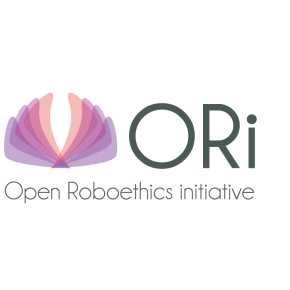
Robohub.org
If drinking and driving, ride the car that doesn’t need your input or let it go home w/o you
For the past few months the Open Roboethics initiative and Robohub have explored the topic of autonomous cars in the form of biweekly polls. We were able to find out a lot of interesting facts about what our readers think.
When we asked our readers, ‘should the unlicensed be allowed to ride in autonomous cars alone?’ we found some surprising results. While over half of the participants (52%) were opposed to having children ride in autonomous cars alone, a majority of participants were supportive of unlicensed seniors and legally blind persons riding in the cars alone (67% and 58% respectively).
This made us curious about some of the key factors that may be at play in answering the question of who should be allowed to ride in autonomous cars. More specifically, how do people feel about autonomous cars driving around the city streets without a passenger? What if the passenger is drunk or under the influence of drugs? We explored this topic in our latest poll.
Should a fully autonomous car be able to drive around city streets without a human passenger?

If people have genuine distrust toward autonomous cars, then we should expect them to oppose the idea of autonomous cars driving around without a passenger — regardless of the added convenience from a car that drops you off at your destination and goes off by itself to park.
But our results suggest that we don’t really have the issue of pure distrust toward autonomous cars. The majority of participants (80%) supported the idea of a car driving by itself without a passenger, while only 11% opposed the idea. Some of those falling in the ‘other’ category conditionally supported this:
“Not without purpose. i.e., If someone ordered a car then yes, otherwise no.” (Participant 43)
Should an adult under the influence of drugs or alcohol be allowed to ride in autonomous cars?

When we asked our participants whether an adult under the influence of performance impairing substance (e.g., drugs or alcohol) should be allowed to ride an autonomous car alone, the result showed drastic difference depending on whether the car requires human input or not. In general, if the car never requires human input, 94% of participants were supportive of an adult riding in autonomous cars regardless of whether the person is drunk or under the influence of drugs. On the other hand, a majority of participants (77%) opposed this idea if the car sometimes requires human input.
In short, it seems people trust the autonomous controls of a car more than a human passenger if drugs or alcohol are in the mix. Given this and our earlier results it seems that, perhaps unsurprisingly, decision making abilities and the level of autonomy of the car are major factors that should be taken into account when it comes to your qualifications to ride in an autonomous car alone.
It is interesting, however, that more people are supportive of a drunk or high passenger riding in a fully autonomous car (one that never requires human input) than having an autonomous car roam the streets without any passengers. From passenger safety point of view, an empty car that gets into an accident would not put any passenger’s life in danger — whether the accident involves physical harm to pedestrians would depend on the accident. Perhaps this irony stems from the fact that having a passenger inside a car would make it easier to hold a person (likely the passenger) responsible for accidents.
Regardless of the reasons for this contrasting result, one thing is clear: even when we have autonomous cars, drinking and driving is going to be a tough sell!
The results of the poll presented in this post have been analyzed and written by AJung Moon, Jason Millar, Shalaleh Rismani, and Camilla Bassani at the Open Roboethics initiative.
tags: Automotive, c-Politics-Law-Society, machine ethics, reader poll, reader poll: autonomous cars, Report, robohub focus on autonomous driving, Robot Car





